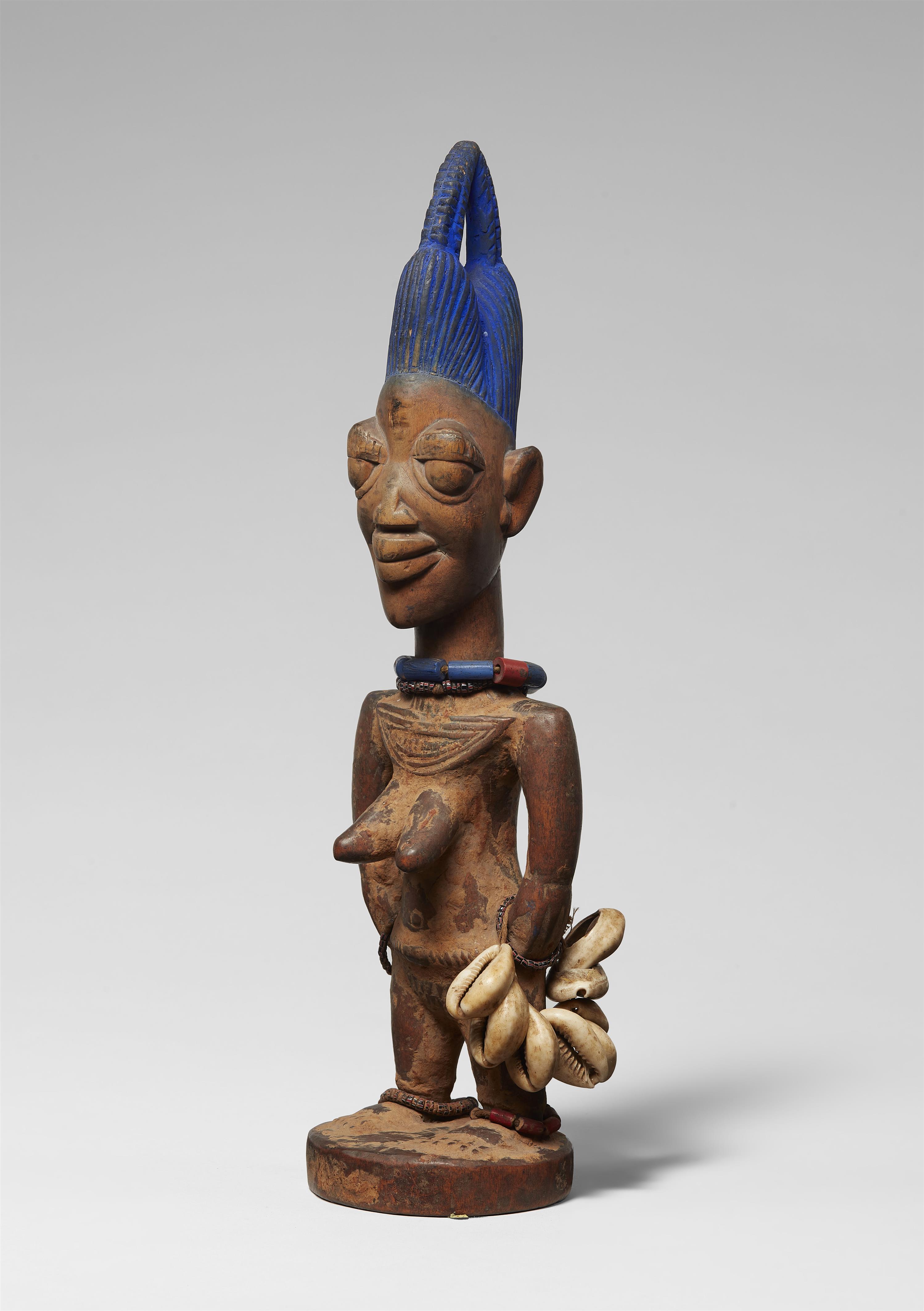YORUBA TWIN FIGURE
ibeji
from the workshop of the “Master of Archaic Smile“
Ila Orangun, Igbomina
30.5 cm. high
Cf. Fagg, W. et al., "Yoruba Sculpture of West Africa", New York, 1982, p.141, pl.44. The author writes: The southern Igbomina town of Ila-Orangun is famous for its generations of carvers associated with Inurin's compound in Iperin quarter. One of the most famous is called by William Fagg “the master of the archaic smile." A comparison of the several examples in the collection of the National Museum, Lagos, and in other collections suggests that more than one carver worked in this style. Marilyn Houlberg, who has studied ibeji figures from Ila, notes that three documented carvings of this style in the National Museum belonged to persons in Obasaba's compound in Iperin quarter and were said to have been carved between 1850 and 1885. The unknown carver of these enchanting figures has defied the convention of the passive or sombre facial expression. He has exaggerated the lips and given prominence to the chin in a fashion that is almost unique among the carvers of Inurin's compound. The large bulbous eyes, the high cheekbones, and narrow jaw, as well as the slightly diminished nose, combine to create the wonderful smile that makes these images so charming. In addition to depicting beads around the waist, the carver placed an Islamic amulet, or "tirah", on the chest and back of each figure. The "tirah" is a leather placket containing quotations from the Koran and sometimes medicinal herbal concoctions to protect the wearer from evil spirits. Islamic influence in northern Yorubaland dates to the Holy War of 1804, when the city of Ilorin came under Muslim rule. Over the next four decades, Islam spread rapidly south into the Oyo, Igbomina, and Ekiti areas.
Provenienz
Harry A. Franklin (1904-1983), Los Angeles
Valerie Franklin, Beverly Hills
Sotheby's, New York, 21 April 1990, lot 329
Sydney L. Shaper (1924-2010), New York
Arte Primitivo, New York, 20 July 2016, lot 365
French private collection

